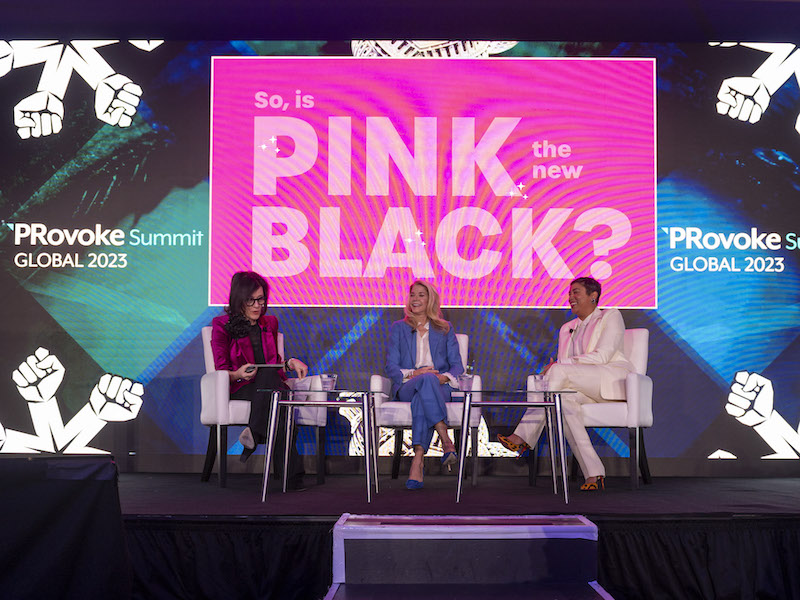Maja Pawinska Sims 07 Nov 2023 // 4:59PM GMT

WASHINGTON, DC — After the summer of Barbie, speakers at the PRovokeGlobal summit this week considered what the world of marketing and communications can do to maintain momentum for the renewed focus on gender equality and the “she-conomy”.
Weber Shandwick CEO Gail Heimann moderated a candid conversation with Candace Bushnell, journalist and author of ‘Sex & the City’, and Ashley Etienne, senior advisor at Powell Tate, CBS News senior political contributor, former deputy assistant to President Joe Biden, communications director to vice president Kamala Harris, and communications director and senior advisor for Nancy Pelosi.
Heimann outlined how the Barbie movie phenomena – the first woman-directed film to gross more than a billion dollars – in combination with Taylor Swift’s Eras Tour, the Women’s World Cup and Beyonce’s The Renaissance tour had created a “joyful collision” in popular culture that had reignited the issue of equality for women, and shone a spotlight on female empowerment.
However, with the continued gender pay gap and female leadership and representation at the top of business and politics still making sobering statistics, Heimann asked if anything has really changed.
“Women ruled the world this summer, but we’ve been talking about the gender pay gap since 2014 and the numbers haven’t changed. Women overall earn 77 cents on a man’s dollar, only 14% of global leaders are women, and the CEOs of advertising and holding companies are 100% men.”
Bushnell said that compared to her early career as a journalist, “we have come a very long way”: “I was super aware of sexism in the 1960s and 70s, and the blatantly sexist messages directed at women. It was shocking how men treated and dismissed women. My goal was to change the way the world thinks about women.
“But there are still ageist boundaries – 86% of women over the age of 50 are mothers and we need to push the boundaries of being child free and making different choices for women OK, as opposed to telling women their only value is being a mother.”
Bushnell also said there needed to be more female representation in areas of industry traditionally dominated by men, including finance, science, technology and engineering: “We really need women in finance. The way men do business is ridiculous.”
Reflecting on how the position of women in politics has evolved, Etienne said: “We have a record number of women in congress and we are ushering a new generation of women in. No matter their political ideology, women are transforming the world of politics, we still need to make progress on issues and policies, but there have been some strides. We can see from the midterms that women continue to vote for their own rights and I think we will see additional progress in terms of legislation.”
She added: “It’s interesting that young women in congress make room for each other at the table – too often women don’t make space for other women, especially in high pressure, intense, sharp elbows situations where there’s only going to be one of us, but the more you bring to the table, the more the whole community of women is empowered. There’s not one issue that isn’t a women’s issue.”
Etienne also suggested that one of the ways forward for women in business and politics was to invest in men: “If we’re going to topple the patriarchy, women need to start mentoring men. The only way to transform structures and systems runs by men is to transform men, not just our sons but our colleagues so they can continue to grow and develop. We need to invest in men from young to old, those we work with and those we love.”
In terms of how brand marketers and communicators could play their part in maintaining momentum from this summer’s spotlight on women, Bushnell said: “Stop cutting your demographics off at 50. The population is getting older – that’s your audience now and that is only going to grow and marketers haven’t caught up to that. After 50 you don’t exist and that’s a big oversight.”
Etienne added that diverse representation was also critical for brands: “That’s what I love about Barbie – when I grew up there was no black Barbie. We need to make sure every person is represented, and in non-traditional roles. Too often women are seen as mothers and men as co-parents, and we need to continue to push the boundaries on that.”



































.jpg)

















